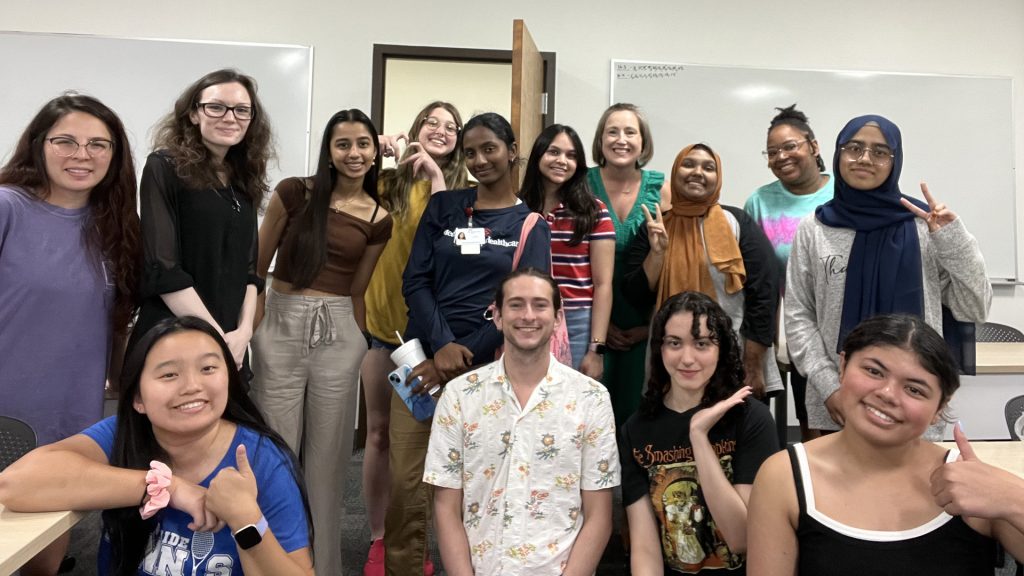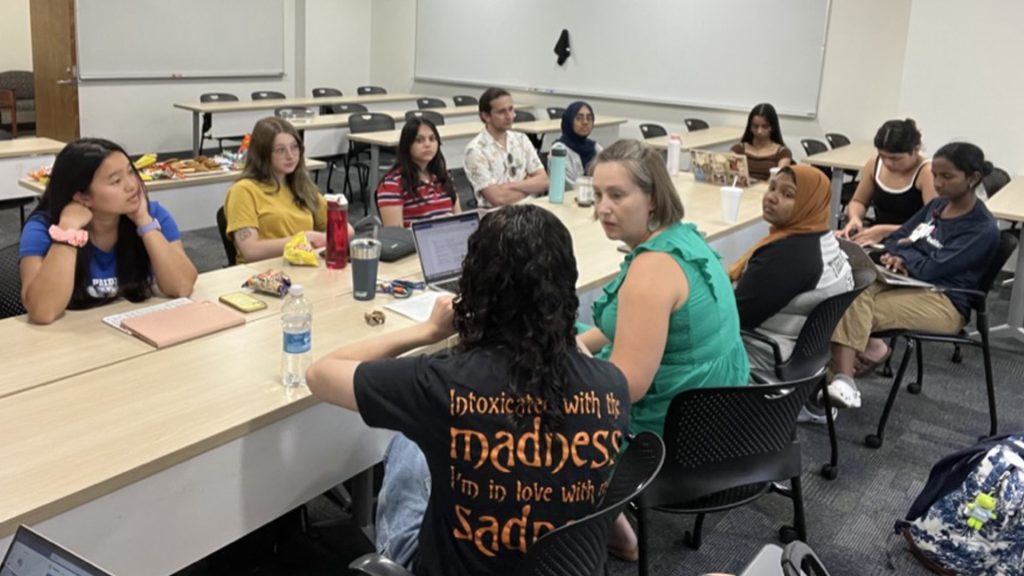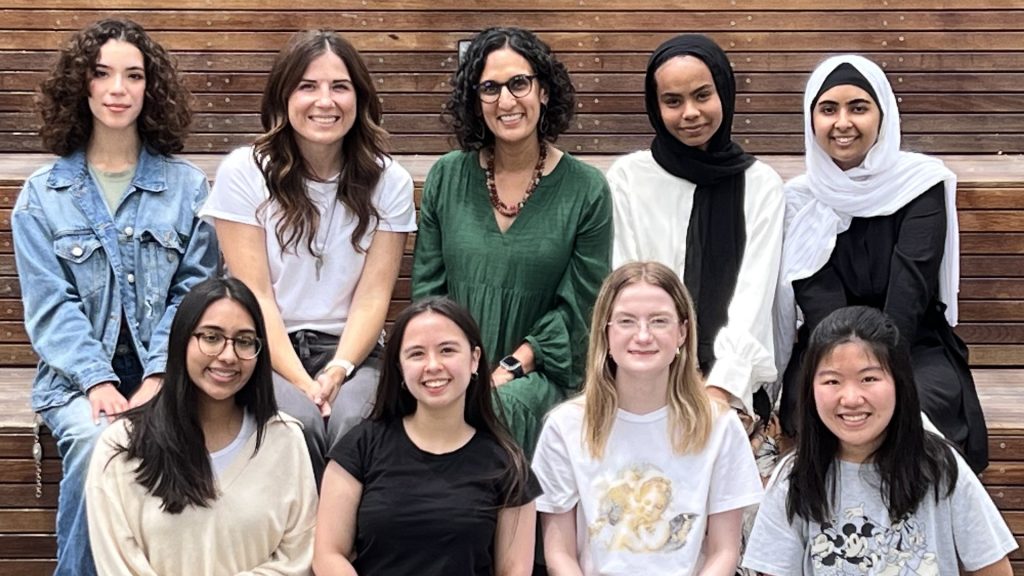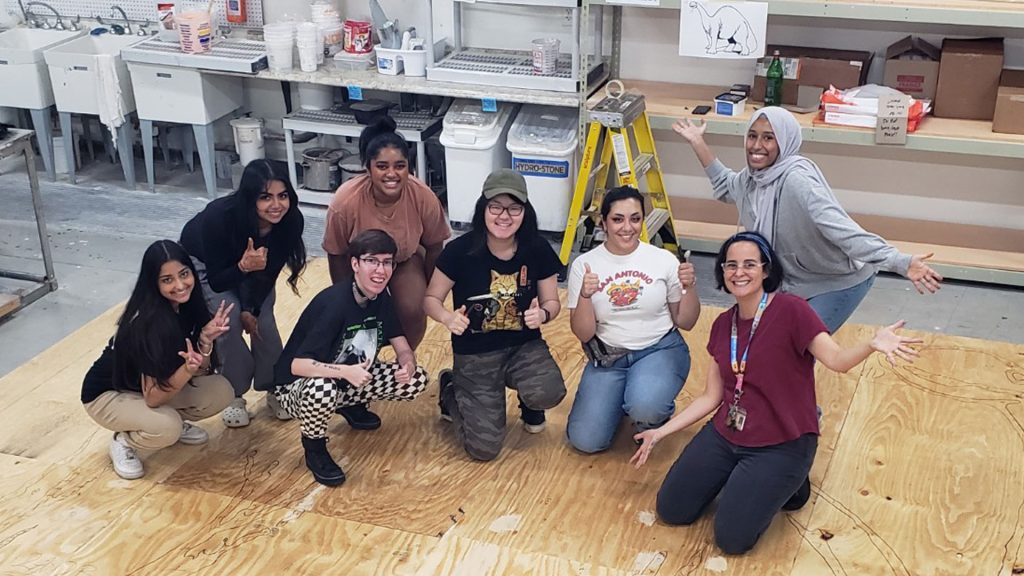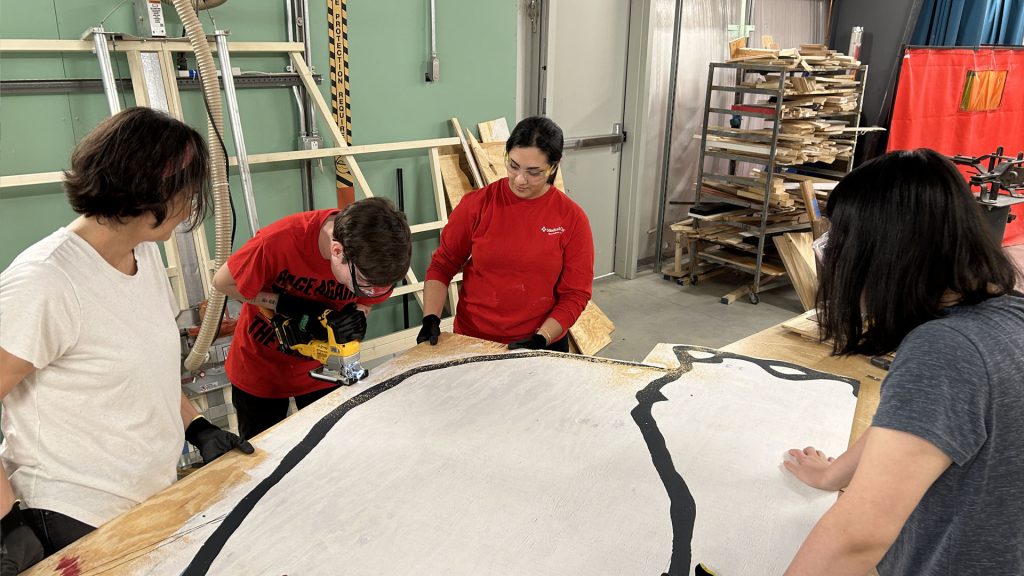
Students & SWGs
The Short-term Working Group (SWG) program is designed to provide UTD students an opportunity to work closely with a faculty member on a targeted project. Students can expect to see projects for Fall 2025 posted in two batches: some “Early Action” SWG projects will be available by May 10th, while the complete SWG project list will be available no later than August 10th. Join the SWG Student Team below to be notified when new projects are available!
Faculty members propose projects and welcome ~10 undergraduate students to join them for four in-person sessions to complete a project. Students who complete a SWG program will gain skills, develop a professional relationship with a faculty member, meet other UTD students and receive a digital badge highlighting skills gained during the project.
Fall 2025 Projects
Browse details of all Fall 2025 projects

Pre-Dental Microbiology Research Class (Fall 2025)
Faculty Members: Dr. Kelli Palmer
School of Natural Sciences & Mathematics
Students will develop course materials for an undergraduate-level course focused on dental microbiology, including both lecture and lab components. We will identify the most important microbes for dental microbiology and identify exciting and impactful hypotheses that can be tested in a course-based laboratory research setting by undergraduate students. We will identify and develop core learning outcomes for the lecture and lab components by researching dental school microbiology coursework and connecting with dentists in the DFW area. The activities and knowledge developed will be used in a Fall 2026 course.

Dystopian Diner: Food for Thought (Fall 2025)
Faculty Members: Dr. Wade Crowder
Bass School of Arts, Humanities, and Technology
Students will explore and research the communication challenges inherent in global warming by identifying facts, fiction, and popular myths surrounding climate change. Interviewing and research will be conducted, as students will be exposed to some advanced research skills by accessing popular as well as scholarly sources that help dispel some confusion surrounding climate change. Student interviews will be conducted with subject matter experts; more specifically, they may conduct interviews with UTD faculty who are climate change experts and have studied the climate and are knowledgeable regarding global warming. Students may also reach out to discover facts and subject matter experts from the National Oceanic and Atmospheric Administration. Furthermore, students will be provided a simple flow-chart and overview of desired outcomes related to the project.

Revamping and Enhancing the Microbiology Lab (Fall 2025)
Faculty Members: Dr. Eva Sadat
School of Natural Sciences & Mathematics
Students will contribute to the development of the Microbiology lab course, a project-based lab centered on isolating bacteria from soil that produce antimicrobial agents. Their involvement will include designing assignments and assessments aligned with the course’s learning objectives. These will range from short assessments, such as quizzes, to more comprehensive evaluations, including practical exams. Additionally, students will assist in creating assignments based on readings and research papers. They will also help design engaging lab activities to enhance student participation and motivation. These activities will be implemented in the Spring 2025 Microbiology lab course.

Exploring the Most Amazing Animal Functions (Fall 2025)
Faculty Members: Dr. Zhuoru Wu
School of Natural Sciences & Mathematics
Ever wonder how bats use echolocation, how tiny butterflies migrate across continents, or why hummingbirds guzzle sugar all day without getting diabetes? Join Dr. Wu’s student team to help design a brand-new upper-level elective that dives into the most extreme and mind-blowing animal adaptations. You’ll gather cutting-edge research, epic videos, and wild examples to shape a discussion-based course like no other. If you’re curious, creative, and obsessed with biology at its boldest—this is your moment. Let’s create something unforgettable!

Building Your Computer’s Dating Profile (Fall 2025)
Faculty Members: Dr. Xtine Burrough
Bass School of Arts, Humanities, and Technology
Students will develop a creative project, currently in its first stage of iteration, prompting visitors to “Build Your Computer’s Dating Profile.” It is currently functional, in what we would term “wire frames”. Students will continue to iterate on the design (front-end, HTML/CSS), on-page interactions (Javascript), and writing segments of profiles for the project’s data set. Students can participate in any of these aspects as well as helping in focus groups for usability testing and to develop visual materials used to share the work.

Act in and Create Sci-Fi Eco-Theatre (Fall 2025)
Faculty Members: Dr. Mazia Hixson
Bass School of Arts, Humanities, and Technology
This working group invites 10 students to read, study, stage, and perform an original one act play entitled CHIMERA. Entertaining the fate of human existence in an era of climate change, the play discusses technological innovations that move society closer to “the singularity”—the moment when super-intelligent machines evolve without human assistance—as we simultaneously grapple with the more immediate threat of environmental collapse. The main character is a cyborg firefighter who must reconcile the past and save humanity from being expelled from planet Earth. The cyborg appears on stage as the embodiment of the “uncanny valley,” the moment when AICH’s cyborg-human form becomes tangible, visible, recognizably human.

Negotiation Done Right (Fall 2025)
Faculty Members: Dr. Linda Swindling
Naveen Jindal School of Management
Students will develop and enhance the learning experience and student engagement by creating and improving materials and activities for negotiation and dispute resolution courses designed for leaders. Come explore ways to determine which tools, resources, and activities are most effective and create collaboration both online and in-person. Reflect and revise methods which aid students in acquiring more confidence and better connections. In addition to positively impacting students’ personal and professional lives, you will be seeking ways to improve the overall UTD community through negotiation and dispute resolution.

Creating a Mobile Community Hearing Clinic (Fall 2025)
Faculty Members: Dr. Cornetta Mosley
School of Behavioral and Brain Sciences
This SWG team will build a sustainable foundation for the Audiology program’s Community Hearing Clinic- an annual clinical rotation in which students provide in-house hearing healthcare services to older adults in the Dallas area. We will develop promotional materials, contact local sites (e.g., community centers, assisted living facilities, etc.), and create a system for promoting and scheduling the clinic. Students would play a direct role in improving service delivery to older adults in our community and develop skills including project management, professional communication, community outreach, collaboration, and media literacy.
